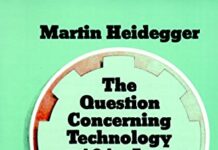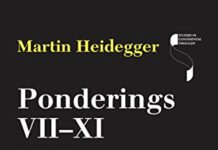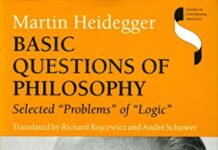
Ebook Info
- Published: 2000
- Number of pages: 244 pages
- Format: PDF
- File Size: 3.57 MB
- Authors: Martin Heidegger
Description
The commentaries of Martin Heidegger on the lyric poems of German Romantic poet Friedrich Hölderlin are an extraordinary encounter between poetry and the penetrating thought of a powerful philosophical mind. The writings included here reveal much about Heidegger’s innermost thoughts on poetry, language, and how we think.This is the first English translation of this important work.
User’s Reviews
Editorial Reviews: About the Author Martin Heidegger (1889-1976) was a German philosopher. Heidegger was educated at the Collegium Borromaeum and the University of Freiburg. He is often considered one of the greatest minds of twentieth century philosophy, specifically in regard to metaphysics, ontology, and hermeneutics. Heidegger is the author of Being and Time, Introduction to Metaphysics, The Principle of Reason, and many more.Keith Hoeller has written numerous essays on poetry, and is the editor of Heidegger and Psychology and Thomas Szasz: Moral Philosopher of Psychiatry. Hoeller is also the editor of the Review of Existential Psychology & Psychiatry. He lives in Seattle, Washington, and teaches philosophy and psychology in the Washington state community college system.
Reviews from Amazon users which were colected at the time this book was published on the website:
⭐Execellent Well Done and Quick Delivery Thanks
⭐The philosopher uncovers his principles of what he believes the poetry should be.
⭐The present volume is a translation of Erläuterungen zu Hölderlins Dichtung, Volume 4 (1981) of the German Collected Edition of Heidegger’s works. It contains six essays written between 1936 and 1968, which are supplemented by two brief, related texts and an “Afterword” by the editor of the German edition, Friedrich-Wilhelm von Herrmann. Only two of the essays have already appeared in translation…. …. The remaining essays appear here for the first time in English….Of the two supplementary texts presented in Elucidations of Hölderlin’s Poetry, Heidegger’s “Preface to the Repetition of the Address `Homecoming'” (1943) had already been translated (in Existence and Being). The other short text is Heidegger’s “Preface to a Reading of Hölderlin’s Poems” (1963), which can be heard on the phonograph recording Heidegger liest Hölderlin (Pfullingen: Neske). There is also “A Glimpse Into Heidegger’s Study,” which consists of photographic reproductions of several pages from one of Heidegger’s copies of Hölderlin’s poems which show Heidegger’s marginal notes to Hölderlin’s poem “Griechenland.” Perhaps the most accessible of the essays is “Hölderlin’s Earth and Heaven,” in which Heidegger meditates on this poem. Written by Heidegger when he was almost eighty years old, nearly all of the themes of the earlier essays are revisited in it: the forgotten question of the meaning of be[-ing] [Sein], our intimacy with nature and its mystery, the poet’s calling, the provenance and essence of language, the sense of the holy on earth, the uniqueness of human presence among things, the spiritual core of experience, the omnipresence of the Greek philosophical tradition in Western sensibility, the primacy of thinking in existence, the meaning of belonging to a cultural heritage, and human historical destiny. These essays are not literary criticism in the ordinary sense, although they have by now inspired a generation or two of scholars (beginning most notably with Jacques Derrida) who undertake various forms of textual analysis of works of philosophy and literature. As Heidegger notes, the essays “do not claim to be contributions to research in the history of literature or aesthetics. They spring from a necessity of thought” (p. 21). What, then, are these commentaries? They are not explanations of Hölderlin’s poems, prose versions of his poetry; rather, they are Heidegger’s efforts to get at Hölderlin’s thought, which, like anyone’s thought, he believes, remains and must remain a mystery. According to Heidegger, “we never know a mystery by unveiling or analyzing it to death, but only in such a way that we preserve the mystery as mystery” (p. 43). We should also note that, for Heidegger, authentic poetry is not a literary genre alongside drama and the novel, but is rather “the founding of be[-ing] in the word” (p. 59). The nature of poetry, Heidegger says, is ontological, not linguistic; its source is remembrance [Andenken] or “reflecting on something, [which] is a making firm . . .. Remembrance attaches thinkers to their essential ground (p. 165). In another place, Heidegger call this making firm or thickening of thought in recollection or reflection writing [Dichten] in the basic sense or “poetizing thinking,” which Heidegger further characterizes as an activity of that special individual, the poet’s poet (p. 52), who is situated “between” (p. 64) human beings and the gods. The poets, whom he calls demigods (p. 126), are analogous to the chthonic gods Heidegger finds reference to in the fable ” Cura” (Hyginus), which he cites in Section 42 of Being and Time. In that text, we recall, Heidegger finds an early preontological reference to Sorge [minding, also translated as care], which he takes to be the fundamental feature of existence. For the existential analyst, however, the most remarkable passages are found in “`Remembrance,'” where Heidegger presents a brilliant, albeit brief, phenomenology of shyness or retraint [Scheu] [ (p. 153). The context of the discussion of restraint is Heidegger’s description of the nature of the poet, who thinks back to the origin of the rivers, that is, to the origin of the poets themselves, those unique individuals who mediate between what is of this earth and the gods (p. 126). The poet is characterized by restraint. What is restraint? It is not bashfulness [Schüchternheit] or timidity, Heidegger explains, nor is it based on insecurity. Instead, restraint is a keeping to oneself that is marked by a concerted reserve in the face of that about which one might easily be facile. Restraint is a keeping to oneself that guards something precious, for which one feels great affection. What evokes restraint first causes the poet to hesitate and withhold what he or she might be tempted to make available without further ado. The heart of restraint is forbearance [Langmut]. Restraint is a model of what human presence might aspire to. In an age when self-assertion and “attitude” are accorded pre-eminence among the behaviors associated with success, fulfillment and self-realization. It contrasts with childish demands for immediate gratification and the unwillingness to postpone gratification. It is also seen in the capacity to wait-for answers, for a solution to life’s everyday demands, for resolution to the congenital ambiguity of life on this earth, and for change in psychotherapy. “Restraint is that reserved, patient, astonished remembrance of what remains close, in an intimacy that consists solely in keeping at a distance what is far off and thereby keeping it ever ready to arise from its source.” The references to intimacy and distancing are familiar from Heidegger’s other writings, where they are associated with be[-ing] [Sein] and its source. Given the relation of thinking and be[-ing], restraint is “knowing that the origin [of be[-ing] in its source] does not allow itself to be experienced directly.” As Heidegger understands it, the fundamental tone of restraint, then, is humility with respect to our grasp of what is going on. “Restraint determines the way to the origin” of be-[-ing]. It is both our way out of inauthenticity and the way in to the source of be[-ing]. Moreover, Heidegger adds, restraint is “more decisive than any sort of violence”–including interpretative violence in psychotherapy. Finally, there is Heidegger’s notion of recollection, which is not a retrieval of the past, as it is in psychoanalysis. Instead it is way of moving into the future by taking over one’s destiny, authentically and with resolve. The poet’s experience, once again, provides the model of this kind of recollection, which might serve all human beings, who, as Hölderlin says, “dwell poetically on this earth.”
⭐The present volume is a translation of Erläuterungen zu Hölderlins Dichtung, Volume 4 (1981) of the German Collected Edition of Heidegger’s works. It contains six essays written between 1936 and 1968, which are supplemented by two brief, related texts and an “Afterword” by the editor of the German edition, Friedrich-Wilhelm von Herrmann. Only two of the essays have already appeared in translation: “Hölderlin and the Essence of Poetry” (1936) and “`Homecoming / To Kindred Ones'” (1943) were among the first Heidegger translated into English. In 1949, they were published, along with “What Is Metaphysics?” and “On the Essence of Truth” (to which they are related) as Existence and Being. The remaining essays appear here for the first time in English: “`As When On a Holiday . . .'” (1939), “`Remembrance'” (1942), “Hölderlin’s Earth and Heaven” (1959), and “The Poem” (1968). Of the two supplementary texts presented in Elucidations of Hölderlin’s Poetry, Heidegger’s “Preface to the Repetition of the Address `Homecoming'” (1943) had already been translated (in Existence and Being). The other short text is Heidegger’s “Preface to a Reading of Hölderlin’s Poems” (1963), which can be heard on the phonograph recording Heidegger liest Hölderlin (Pfullingen: Neske). There is also “A Glimpse Into Heidegger’s Study,” which consists of photographic reproductions of several pages from one of Heidegger’s copies of Hölderlin’s poems which show Heidegger’s marginal notes to Hölderlin’s poem “Griechenland.” Perhaps the most accessible of the essays is “Hölderlin’s Earth and Heaven,” in which Heidegger meditates on this poem. Written by Heidegger when he was almost eighty years old, nearly all of the themes of the earlier essays are revisited in it: the forgotten question of the meaning of be[-ing] [Sein], our intimacy with nature and its mystery, the poet’s calling, the provenance and essence of language, the sense of the holy on earth, the uniqueness of human presence among things, the spiritual core of experience, the omnipresence of the Greek philosophical tradition in Western sensibility, the primacy of thinking in existence, the meaning of belonging to a cultural heritage, and human historical destiny. These essays are not literary criticism in the ordinary sense, although they have by now inspired a generation or two of scholars (beginning most notably with Jacques Derrida) who undertake various forms of textual analysis of works of philosophy and literature. As Heidegger notes, the essays “do not claim to be contributions to research in the history of literature or aesthetics. They spring from a necessity of thought” (p. 21). What, then, are these commentaries? They are not explanations of Hölderlin’s poems, prose versions of his poetry; rather, they are Heidegger’s efforts to get at Hölderlin’s thought, which, like anyone’s thought, he believes, remains and must remain a mystery. According to Heidegger, “we never know a mystery by unveiling or analyzing it to death, but only in such a way that we preserve the mystery as mystery” (p. 43). We should also note that, for Heidegger, authentic poetry is not a literary genre alongside drama and the novel, but is rather “the founding of be[-ing] in the word” (p. 59). The nature of poetry, Heidegger says, is ontological, not linguistic; its source is remembrance [Andenken] or “reflecting on something, [which] is a making firm . . .. Remembrance attaches thinkers to their essential ground (p. 165). In another place, Heidegger call this making firm or thickening of thought in recollection or reflection writing [Dichten] in the basic sense or “poetizing thinking,” which Heidegger further characterizes as an activity of that special individual, the poet’s poet (p. 52), who is situated “between” (p. 64) human beings and the gods. The poets, whom he calls demigods (p. 126), are analogous to the chthonic gods Heidegger finds reference to in the fable ” Cura” (Hyginus), which he cites in Section 42 of Being and Time. In that text, we recall, Heidegger finds an early preontological reference to Sorge [minding, also translated as care], which he takes to be the fundamental feature of existence. For the existential analyst, however, the most remarkable passages are found in “`Remembrance,'” where Heidegger presents a brilliant, albeit brief, phenomenology of shyness or retraint [Scheu] [ (p. 153). The context of the discussion of restraint is Heidegger’s description of the nature of the poet, who thinks back to the origin of the rivers, that is, to the origin of the poets themselves, those unique individuals who mediate between what is of this earth and the gods (p. 126). The poet is characterized by restraint. What is restraint? It is not bashfulness [Schüchternheit] or timidity, Heidegger explains, nor is it based on insecurity. Instead, restraint is a keeping to oneself that is marked by a concerted reserve in the face of that about which one might easily be facile. Restraint is a keeping to oneself that guards something precious, for which one feels great affection. What evokes restraint first causes the poet to hesitate and withhold what he or she might be tempted to make available without further ado. The heart of restraint is forbearance [Langmut]. Restraint is a model of what human presence might aspire to. In an age when self-assertion and “attitude” are accorded pre-eminence among the behaviors associated with success, fulfillment and self-realization. It contrasts with childish demands for immediate gratification and the unwillingness to postpone gratification. It is also seen in the capacity to wait-for answers, for a solution to life’s everyday demands, for resolution to the congenital ambiguity of life on this earth, and for change in psychotherapy. “Restraint is that reserved, patient, astonished remembrance of what remains close, in an intimacy that consists solely in keeping at a distance what is far off and thereby keeping it ever ready to arise from its source.” The references to intimacy and distancing are familiar from Heidegger’s other writings, where they are associated with be[-ing] [Sein] and its source. Given the relation of thinking and be[-ing], restraint is “knowing that the origin [of be[-ing] in its source] does not allow itself to be experienced directly.” As Heidegger understands it, the fundamental tone of restraint, then, is humility with respect to our grasp of what is going on. “Restraint determines the way to the origin” of be-[-ing]. It is both our way out of inauthenticity and the way in to the source of be[-ing]. Moreover, Heidegger adds, restraint is “more decisive than any sort of violence”–including interpretative violence in psychotherapy. Finally, there is Heidegger’s notion of recollection, which is not a retrieval of the past, as it is in psychoanalysis. Instead it is way of moving into the future by taking over one’s destiny, authentically and with resolve. The poet’s experience, once again, provides the model of this kind of recollection, which might serve all human beings, who, as Hölderlin says, “dwell poetically on this earth.”
⭐The philosophy of Martin Heidegger has the poetry of Holderlin as one of its nucleus of inspiration. The immnse difficulty of translating this wonderful text by Heidegger into English can only be appreciated by those who are familiar with the German language and have read the original German text. While the dialogue between Heidegger and Holderlin is often intense, dificult and complex, it is at the same time illuminating in terms of deliniating the task of the philosopher and the work of the poet. Dr. Hoeller’s translation consitutes an authentic, rigorous and meditative re-creation of Heidegger’s thinking. If there is any doubt regarding the faithfulness by the translator to the text the reader should start with the essay, “Holderlin and the Essence of Poetry,” which is the most accessible of the essays. Dr. Hoeller has not tried to force the heideggerian text into the limited conceptual of the English language. On the contrary Dr. Hoeller has been able to maintain Heidegger’s thinking alive and challenging.
⭐This “scholar” should stick to the environment he knows best: The American Community College. He has no place in the academic milieu to which he asprires: His German translations are horrendous (perhaps a bit harsh, but…they are bad)and his comments add little to the philosophical knowledge base. Perhaps he should turn to biography – who knows? But not philosophy!Move on…the community colleges need good teachers, why not be one of them?Dare Poenas.
⭐This is an important work by Heidegger and one that is important to work through. Holderlin’s work was crucial to Heidegger’s views on Language and bringing the world to light through it – particularly poetics.
Keywords
Free Download Elucidations of Holderlin’s Poetry (Contemporary Studies in Philosophy and the Human Sciences) in PDF format
Elucidations of Holderlin’s Poetry (Contemporary Studies in Philosophy and the Human Sciences) PDF Free Download
Download Elucidations of Holderlin’s Poetry (Contemporary Studies in Philosophy and the Human Sciences) 2000 PDF Free
Elucidations of Holderlin’s Poetry (Contemporary Studies in Philosophy and the Human Sciences) 2000 PDF Free Download
Download Elucidations of Holderlin’s Poetry (Contemporary Studies in Philosophy and the Human Sciences) PDF
Free Download Ebook Elucidations of Holderlin’s Poetry (Contemporary Studies in Philosophy and the Human Sciences)




